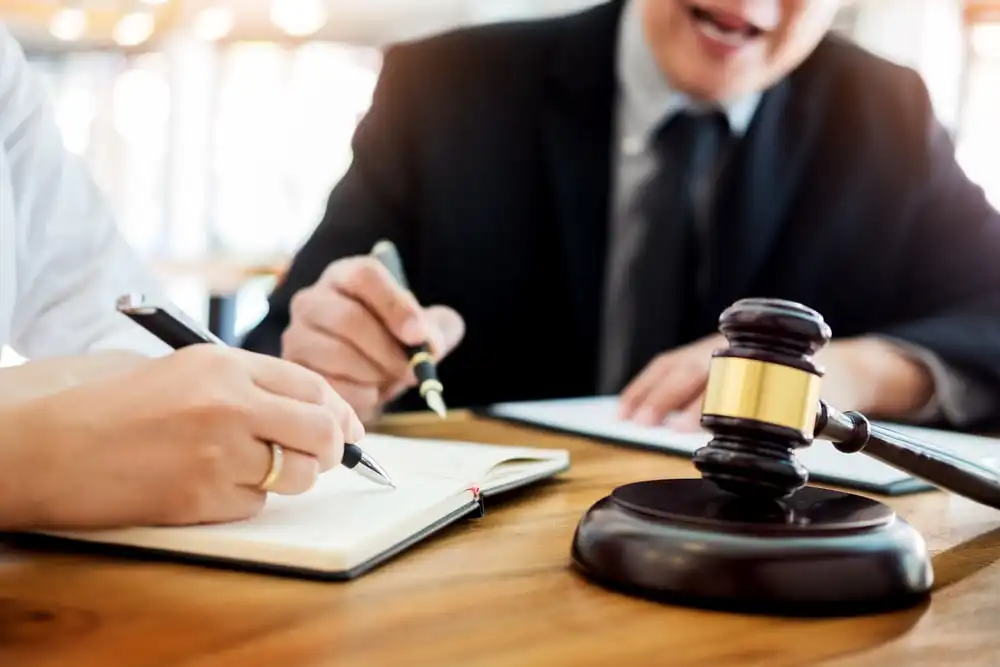If you’ve been involved in a car accident, the aftermath can be overwhelming. Whether you’ve sustained injuries, incurred medical bills, or experienced vehicle damage, the legal process may seem complex and confusing. One of the most important steps you can take to ensure you’re properly compensated for your losses is to consult with a car accident lawyer. During this consultation, the lawyer will assess your case and explain your legal options.
In this blog, we’ll walk you through what to expect during a car accident consultation with a lawyer. Knowing what will happen during the meeting can help you feel more prepared and confident as you navigate the next steps in your case.
1. Initial Discussion and Case Evaluation
Your consultation will begin with a general discussion about your accident. The lawyer will want to hear a detailed account of the incident, including the circumstances leading up to the crash, what happened during the accident, and the aftermath. This helps them understand the basics of your case and whether you have a valid claim.
Key Information to Provide:
-
Date and location of the accident
-
Description of the accident: what happened before, during, and after the collision
-
Names and contact information of the other parties involved
-
Police reports: If available, the police report can provide crucial information about fault, injuries, and any citations issued.
-
Witness information: Details of any people who witnessed the accident, as their testimony can be valuable.
-
Medical records: Information about injuries you sustained, along with treatment records, diagnoses, and bills.
-
Insurance details: Your insurance policy, the at-fault party’s insurance details, and any communications you’ve had with your insurance company.
The lawyer will use this information to determine whether you have a strong case and whether legal action is warranted. If they believe you have a valid claim, they’ll explain the next steps, including how they can help.
2. Legal Strategy and Potential Outcomes
After gathering the details of your case, the lawyer will discuss possible legal strategies. They’ll explain how they plan to approach your case based on the evidence available and the type of accident you were involved in.
Potential Legal Strategies Include:
-
Negotiating with insurance companies: In many cases, the lawyer will first attempt to settle your claim directly with the insurance company. They’ll use the evidence you’ve provided to negotiate a fair settlement for your medical bills, lost wages, and pain and suffering.
-
Filing a lawsuit: If negotiations with the insurance company don’t result in a fair settlement, the lawyer may recommend filing a personal injury lawsuit. They’ll explain how the litigation process works, including the timeline, legal filings, and potential trial.
-
Exploring alternative dispute resolution (ADR): In some cases, the lawyer may recommend arbitration or mediation as a way to resolve the dispute without going to court. These methods can be quicker and less costly than a full trial.
They will also explain the possible outcomes of your case, discussing both the best-case scenario (a fair settlement or winning the case in court) and the worst-case scenario (for example, losing the case or receiving a minimal settlement). While no lawyer can guarantee a specific outcome, they can give you a realistic idea of what to expect based on their experience.
3. Discussion of Fees and Costs
Before proceeding with any legal action, it’s important to have a clear understanding of the costs involved. During the consultation, the lawyer will explain their fee structure and how they charge for their services. Most car accident lawyers work on a contingency fee basis, meaning they don’t charge you upfront fees but instead take a percentage of the settlement or court award if they win the case.
What to Ask About Lawyer Fees:
-
Contingency Fee Percentage: This is typically around 30-40% of the final settlement, but it can vary depending on the lawyer and the complexity of the case.
-
Additional Costs: Some lawyers may charge additional costs for things like filing fees, expert witness fees, or court costs. The lawyer will explain these charges and how they’re handled.
-
No Fee if You Lose: With a contingency fee arrangement, you typically won’t owe any fees if you don’t win the case. This can provide peace of mind knowing that the lawyer is motivated to win the case in your best interest.
If the lawyer doesn’t offer contingency fees, ask about hourly rates or flat fees. Regardless of the fee structure, ensure you have a clear understanding of costs before proceeding.
4. Timeline and Next Steps
A significant part of your consultation will involve discussing the timeline for your case. The lawyer will provide an overview of the legal process, how long it typically takes, and what each step involves.
Steps in the Legal Process:
-
Investigation and Evidence Gathering: The lawyer may need additional time to gather evidence, consult experts, and speak with witnesses to strengthen your case.
-
Filing the Claim: If the lawyer decides to file a claim with the insurance company, they’ll outline the process and how long it typically takes to receive an offer.
-
Negotiation: If the insurance company makes an offer, your lawyer will negotiate on your behalf to get the best possible settlement.
-
Filing a Lawsuit: If negotiations don’t lead to a fair settlement, the lawyer will discuss the steps involved in filing a lawsuit, including discovery, depositions, and trial (if necessary).
The timeline can vary depending on the complexity of your case, the willingness of the insurance company to settle, and whether your case goes to trial. Typically, personal injury cases can take several months to a few years to resolve, but your lawyer will keep you updated throughout the process.
5. Answering Your Questions and Concerns
During your consultation, the lawyer will allow plenty of time for you to ask questions. This is an important part of the process, as it ensures that you fully understand the steps ahead and the legal options available to you.
Questions You May Want to Ask:
-
What is the likely outcome of my case?
-
How long do you think it will take to resolve the case?
-
What types of damages can I recover?
-
Will I have to go to court?
-
How will I be updated about the progress of my case?
This is your opportunity to evaluate whether the lawyer is a good fit for your needs and if they are willing to take the time to explain everything clearly.
6. Conclusion
Your car accident consultation is a crucial first step in navigating the legal process. It’s an opportunity to discuss your case, understand the lawyer’s approach, and determine if they are the right fit to represent you. By providing all the necessary details, asking the right questions, and gaining a clear understanding of the legal process, you can make informed decisions about how to move forward.
Remember, a consultation is not a commitment, and it’s okay to meet with several lawyers before choosing one to represent you. The right lawyer will provide the expertise, experience, and support you need to secure the compensation you deserve. Don’t hesitate to take advantage of a consultation and get the legal advice that can help protect your rights and your future.



